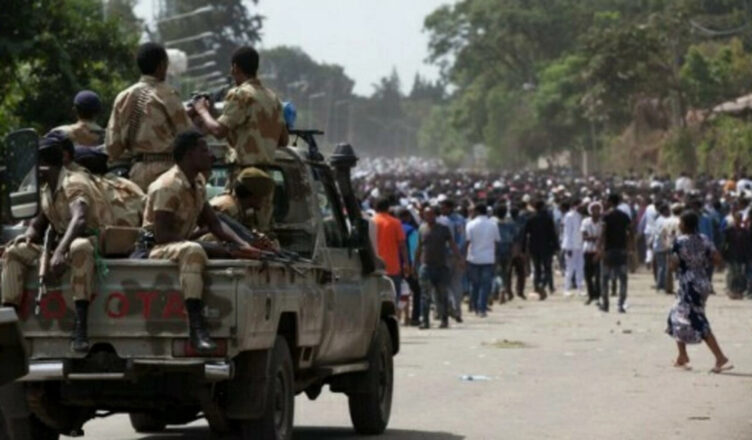The Ethiopian federal army regained control of the Orthodox holy city of Lalibela on Thursday, in the Amhara regional state, following the withdrawal of militiamen who had largely seized it the previous day, according to local residents. A deacon from the locality, speaking anonymously for security reasons, stated that he had attended the funerals of 16 police officers killed in Thursday morning’s fighting. He added that there was no complete tally of victims, but he knew of a resident killed and a resident injured by federal forces.
The deacon confirmed that the federal army now controls the city, with Amhara self-defense militias, known as Fano, having voluntarily withdrawn early in the morning. The Fano, informal Amhara militias made up of voluntary citizen combatants, had supported the Ethiopian army during the two-year conflict with rebel authorities in the neighboring Tigray region.
Although the federal army has regained control of major cities and key routes in the region, the situation remains uncertain. Amhara, Ethiopia’s second-most populous region with around 25 million inhabitants, is predominantly home to the Amhara people.
Furthermore, the United Nations High Commissioner for Refugees (UNHCR) warned in a report published on Thursday that limited funding posed a major challenge to addressing humanitarian needs in Ethiopia. The report revealed that by September 2023, the protection cluster had been funded at only 12%. Of the required $344.5 million, only $42.7 million was available.
The report emphasizes that the main drivers of humanitarian needs in Ethiopia in the third quarter of 2023 continued to be conflicts, climate shocks, and epidemics. Despite the improved security situation in Tigray following the peace agreement in November 2022, vulnerable displaced individuals in northern Ethiopia, including those affected by recent events in Amhara, still have a high demand for protection services.
Other regions, such as Benishangul-Gumuz, Oromia, Gambella, and Somali, face growing protection needs due to intercommunal conflicts, the halt in food aid, clashes between government forces and unidentified armed groups, drought, floods, and cholera.

